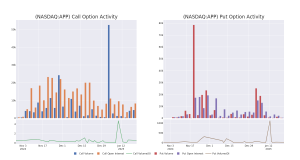The S&P 500 (SNPINDEX: ^GSPC) has been soaring this year. It’s up 28% with just one month of 2024 remaining, which is more than twice its average annual return since the index was established in 1957.
The S&P 500 is weighted by market capitalization, so the largest companies in the index have a greater influence over its performance than the smallest. Therefore, its strong year is no surprise when you consider that shares of Nvidia (NASDAQ: NVDA) — now a $3.3 trillion powerhouse — have soared by 187% in 2024.
Are You Missing The Morning Scoop? Breakfast News delivers it all in a quick, Foolish, and free daily newsletter. Sign Up For Free »
But Nvidia wasn’t the only trillion-dollar company to put up big returns this year. Meta Platforms and Amazon have logged gains of 65% and 38%, respectively. Investors who don’t have exposure to those artificial intelligence (AI) giants in their portfolios have probably underperformed the S&P 500 by a wide margin in 2024.
Buying an exchange-traded fund (ETF) can be an easy way to get that exposure. The Roundhill Generative AI and Technology ETF (NYSEMKT: CHAT) holds many of the most popular AI stocks, and investors can buy into it with as little as $40.
According to research by Goldman Sachs, AI should contribute about $7 trillion to the global economy by 2032. The Roundhill ETF invests in the companies building the platforms, infrastructure, and software that are bringing this technology to life.
The ETF holds just 48 stocks, and its top five positions account for 26.4% of the value of its portfolio, so it’s highly concentrated. But those five stocks are among the leaders in the AI race.
|
Stock |
Roundhill ETF Portfolio Weighting |
|---|---|
|
1. Nvidia |
7.28% |
|
2. Microsoft |
5.85% |
|
3. Alphabet Class A |
5.53% |
|
4. Meta Platforms |
4.41% |
|
5. Taiwan Semiconductor Manufacturing |
3.39% |
Data source: Roundhill Investments. Portfolio weightings as of Dec. 1, 2024.
Nvidia supplies the most advanced graphics processing units (GPUs) for the data center market — chips that are necessary to develop and power AI models. Demand for those GPUs is significantly outstripping supply, and the company’s data center revenue has grown by triple-digit percentages in each of the last six quarters. Nvidia’s new Blackwell GPUs deliver a major leap in performance over the previous generation of chips, so they should buoy its sales for the foreseeable future.
Microsoft and Alphabet are leaders on the software side of the AI race. Microsoft developed its Copilot virtual assistant with help from OpenAI, while Alphabet built its own family of models called Gemini. Plus, both tech giants provide a growing portfolio of AI services through their respective cloud computing platforms, which allow businesses all over the world to deploy the technology.



